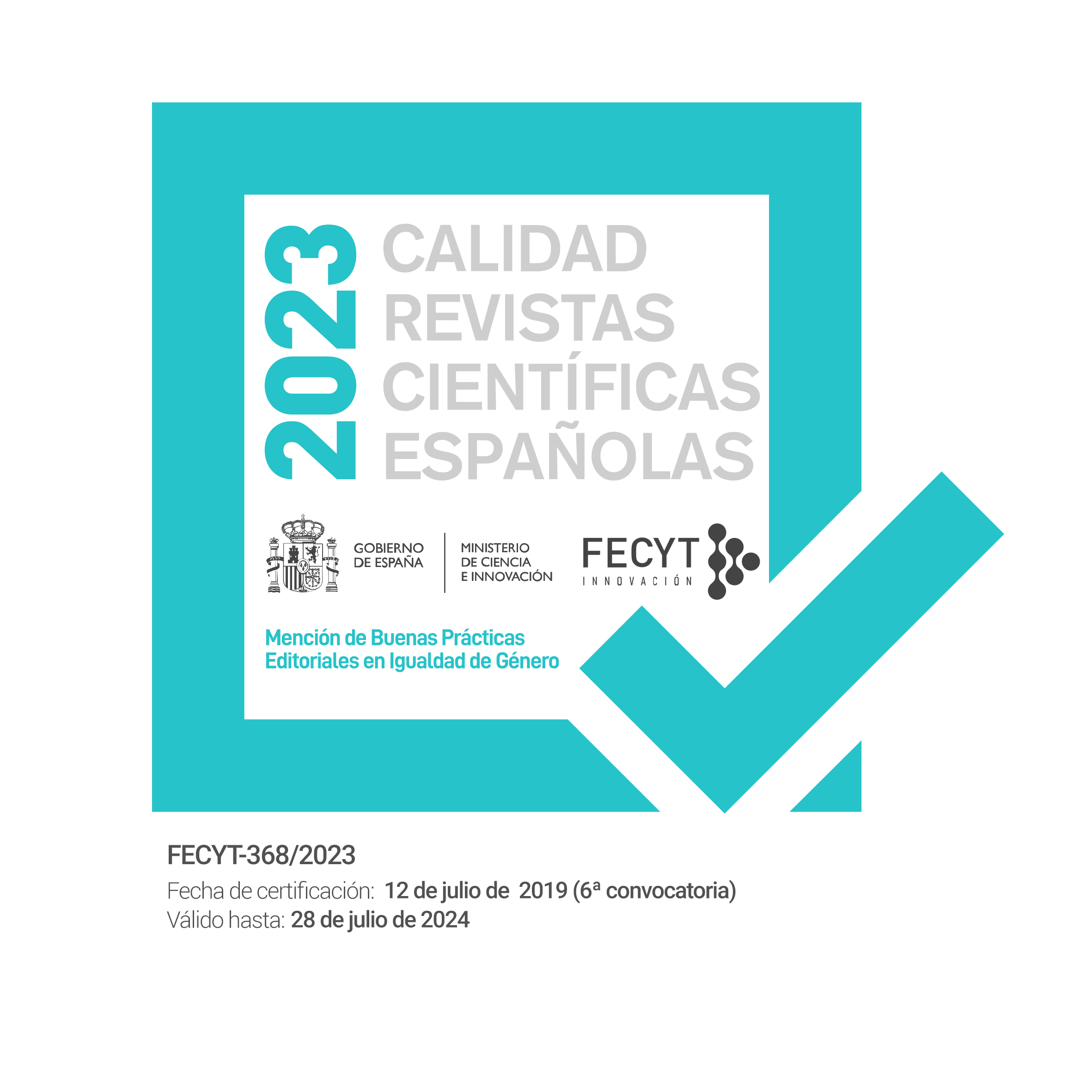Vikram Chandra's constant journey : swallowing the World
DOI:
https://doi.org/10.18172/jes.61Abstract
The purpose of this paper is to account for the challenging hybridity and in-betweenness that derives from the presence of non-Western traces in contemporary fiction written in a global language. Among the huge and ever-growing group of the so-called "new literatures in English", the focus will be placed on Vikram Chandra's novel Red Earth and Pouring Rain (1995). This Indian author, who lives between Bombay and Washington, is a real master when it comes to fictionalized oral storytelling, echoing the traditional Indian epics -the Ramayana and the Mahabharata. It is no wonder, then, that Chandra would define himself as a storyteller. The generic shaping of a text tends to voice the ontological conception of literature that an author has, as it is the case with Chandra's transcultural narrative. His work, delineated on the borders between oral rite and written fiction, displays an intersystemic dialogue in which literature becomes a space of intercultural communication, an endless journey.Downloads
References
Ashcroft, Bill, Gareth Griffiths and Helen Tiffin. 1994 (1989). The Empire Writes Back. Theory and Practice in Post-Colonial Literatures. London/New York: Routledge, New Accents.
Bhabha, Homi K. 1994. The Location of Culture. London/New York: Routledge.
Boehmer, Elleke. 1995. Colonial and Postcolonial Literature. Migrant Metaphors. Oxford/New York: Oxford University Press.
Borges, Jorge Luis. 1989 (1932). “El escritor argentino y la tradición”, in Obras Completas. 1923-1949. Tomo 1. Barcelona: Emecé, 267-274.
Birch, Dinah et al. 1996 (1991). New Writings in English. Norwich: The Open University.
Chandra, Vikram. 1995. Red Earth and Pouring Rain. London: Faber and Faber.
Chandra, Vikram. 1997a. Love and Longing in Bombay. London: Faber and Faber.
Chandra, Vikram. 1997b. “Eternal Don”. In The New Yorker. June 23 & 30. 130-141.
Chandra, Vikram. 2000a. “The Cult of Authenticity. India’s Cultural Commissars Worship ‘Indianness’ Instead of Art”. In Miscelánea. A Journal of English and American Studies, vol. 22 (2000). Universidad de Zaragoza. 175-200.
Chandra, Vikram. 2000b. “Finding a Form”, lecture delivered at diverse Spanish Universities (Zaragoza, Lleida, Autónoma of Barcelona and Castellón) during the author’s visit to Spain, promoted by The British Council in Spain, 18th-26th November 2000.
Dimock, Edward C. et al. 1974. The Literatures of India. An Introduction. Chicago/London: The University of Chicago Press.
Duyfhuizen, Bernard. 1992. Narratives of Transmission. London & Toronto: Associated University Presses.
Dwyer, Rachel. 2000. All You Want is Money, All You Need is Love. Sex and Romance in Modern India. London/New York: Cassell.
Fanon, Frantz 1986 (1952) Black Skin, White Masks. Homi K. Bhabha (foreword). London: Pluto. Trans. Charles Lam Markmann.
Gerow, Edwin. 1974. “The Rasa Theory of Abhinavagupta and its application”, in Edward C. Dimock, Jr. et al. The Literatures of India. An Introduction.
Chicago/London: The University of Chicago Press, 216-227.
Hermans, Theo. 1999. Translation in Systems. Descriptive and Systemic Approaches Explained. Manchester: St. Jerome Publishing.
Kachru, Braj B. 1983. The Indianization of English. The English Language in India. Delhi. Oxford University Press.
Kachru, Braj B. 1990 (1986). The Alchemy of English. The Spread, Functions, and Models of Non-native Englishes. Urbana/Chicago: University of Illinois Press.
Lefevere, André. 1992. Translation, Rewriting and the Manipulation of Literary Fame. London: Routledge.
Loomba, Ania. 1998. Colonialism/Postcolonialism. London/New York: Routledge.
Mukherjee, Meenakshi. 1971. The Twice Born Fiction: Themes and Techniques of the Indian Novel in English. London: Heinemann.
Ngugi Wa Thiong’o. 1981. Decolonising the Mind. The Politics and Language in African Literature. London: James Currey/Heinemann.
Ngugi Wa Thiong’o. 1993. Moving the Centre. The Struggle for Cultural Freedoms. London: James Currey/Heinemann.
Ondaatje, Michael. 1987. In the Skin of a Lion. London: Penguin.
Onega, Susana, ed. 1995. Telling Histories. Narrativizing History, Historicizing Literature. Amsterdam-Atlanta: Rodopi.
Ortiz, Fernando. 1973 (1963). Contrapunteo cubano del tabaco y el azúcar. Barcelona: Ariel (Recently translated into English: Cuban Counterpoint: Tobacco and Sugar. Durham, 1995).
Pratt, Mary Louise. 1997 (1992). Imperial Eyes. Travel Writing and Transculturation. London/New York: Routledge.
Rama, Ángel. 1987 (1982). Transculturación narrativa en América Latina. México: Siglo Veintiuno.
Rao, Raja. 1989 (1938). Kanthapura. New Delhi: Oxford University Press, 2nd ed.
Rushdie, Salman. 1981. Midnight’s Children. London: Picador.
Rushdie, Salman. 1982. “Imaginary Homelands”, in Rushdie, 1991, 9-21.
Rushdie, Salman. 1983. “Commonwealth Literature does not exist”, in Rushdie, 1991, 61-70.
Rushdie, Salman. 1991. Imaginary Homelands. Essays and Criticism 1981-1991. New York: Granta Books.
Sharma, R. P. 1996. Insights into Literary Theory. Eastern and Western Perspectives. New Delhi: Gyan Publishing House.
Spivak, Gayatri Chakravorty. 1993. Outside in the Teaching Machine. London/New York: Routledge.
Walder, Dennis. 1998. Post-Colonial Literatures in English. History, Language, Theory. Oxford: Blackwell.
Downloads
Published
How to Cite
Issue
Section
License
The authors retain copyright of articles and authorize Journal of English Studies the first publication. They are free to share, redistribute, and/or reprint the article without obtaining permission from the publisher as long as they give appropriate credit to the editor and the journal.
Self-archiving is allowed too. In fact, it is recommendable to deposit a PDF version of the paper in academic and/or institutional repositories.
It is recommended to include the DOI number.
This journal is licensed under a Creative Commons Attribution 4.0 International License










